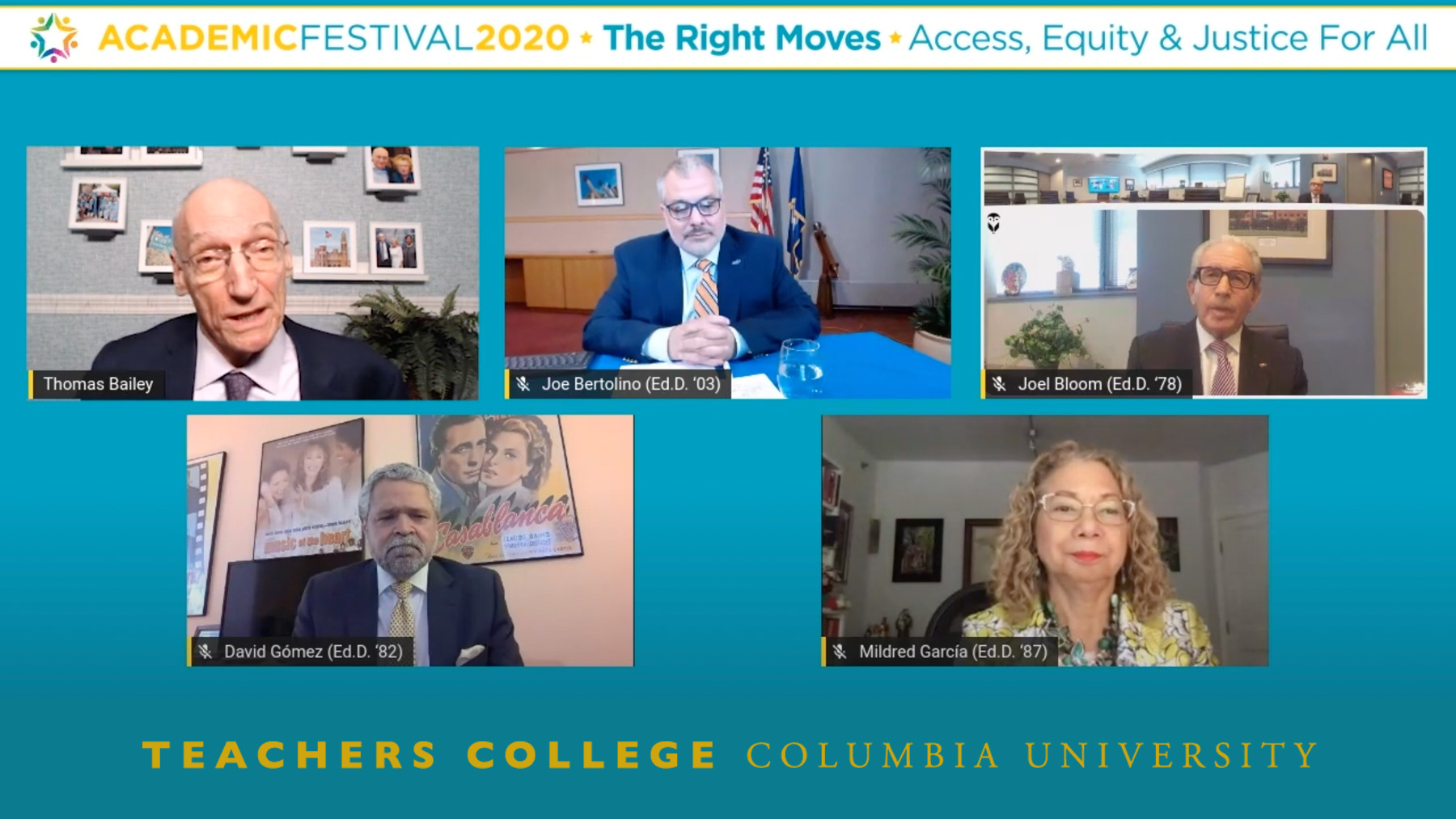The COVID pandemic has widened inequities in America — including in higher education. What needs to change?
That, in essence, was TC President Thomas Bailey’s opening question to four fellow higher education leaders who convened virtually for a panel at Academic Festival: Joe Bertolino (Ed.D. ’03), President of Southern Connecticut State University; Joel Bloom (Ed.D. ’78), President of New Jersey Institute of Technology; Mildred Garcia (Ed.D. ’87, M.A. ’85), President of the American Association of State Colleges and Universities (and former President of California State University at Fullerton); and David Gómez (Ed.D. ’82), who recently retired as President of CUNY’s Hostos Community College.
Gómez tackled the pandemic’s impact on the digital divide. Last spring, he and his staff delivered 600 devices to Hostos students, who are among the city’s poorest. But because many are homeless, the effort soon expanded to creating hotspots, too.
“If distance learning is going to constitute the predominant form of delivery of education for community colleges, which have such a high number of disadvantaged groups, we have to look at access to the internet, and specifically broadband,” he said.
Garcia called on public institutions to balance merit aid, given to attract students with academic, athletic or artistic talent, with need-based aid.
The Future of Higher Education | An Alumni Roundtable Discussion
“Merit-based aid has a place, but not the huge place it has really captured with our colleges and universities,” she said. “We need to be a little bit stronger, a little bit bolder, fighting for the new majority — the first-generation, the low-income, the students of color.”
Paraphrasing Benjamin Franklin, Bailey asked to what extent a liberal arts education “should be useful and to what extent ornamental for all students — and can it be both?”
Bloom acknowledged the importance of the liberal arts but noted that only 13 percent of the nation’s engineers are women. “We are under-served in this tech economy with a lack of representation from minorities and women,” he said, “and we’re not going to get tech right without that diversity.”
Given the conversation about injustice and racial oppression, a liberal arts education is more important than ever.
—Joe Bertolino, (Ed.D. ’03), President of Southern Connecticut State University
Bertolino noted that students and their families are “investing in “career readiness at the moment of graduation” but also reported that “employers are letting us know that their employees need to have all the soft skills necessary for success — to be able think critically, write, speak, reflect and understand others.” And “given the conversation about injustice and racial oppression,” he said, “a liberal arts education is more important than ever. Understanding one’s history, understanding others — that’s a skillset, and it surely helps one to become employed and career ready.”

